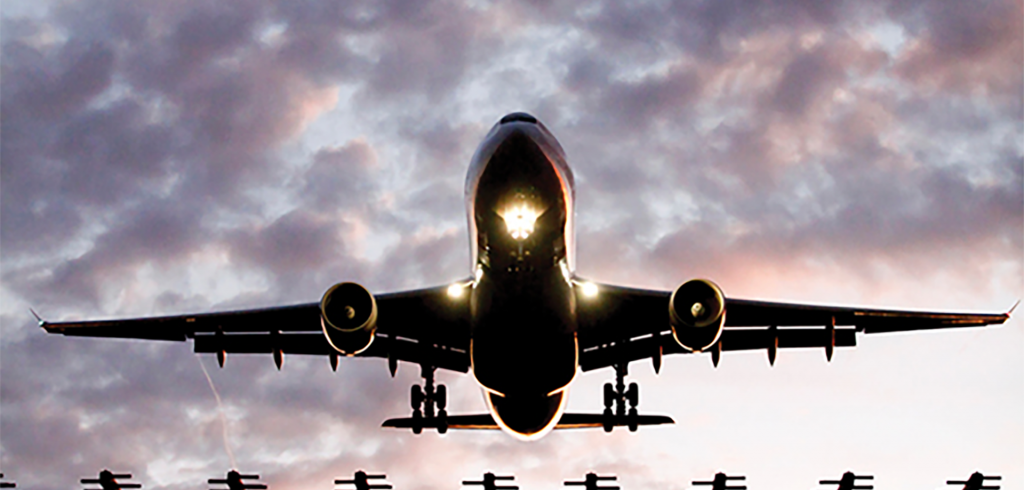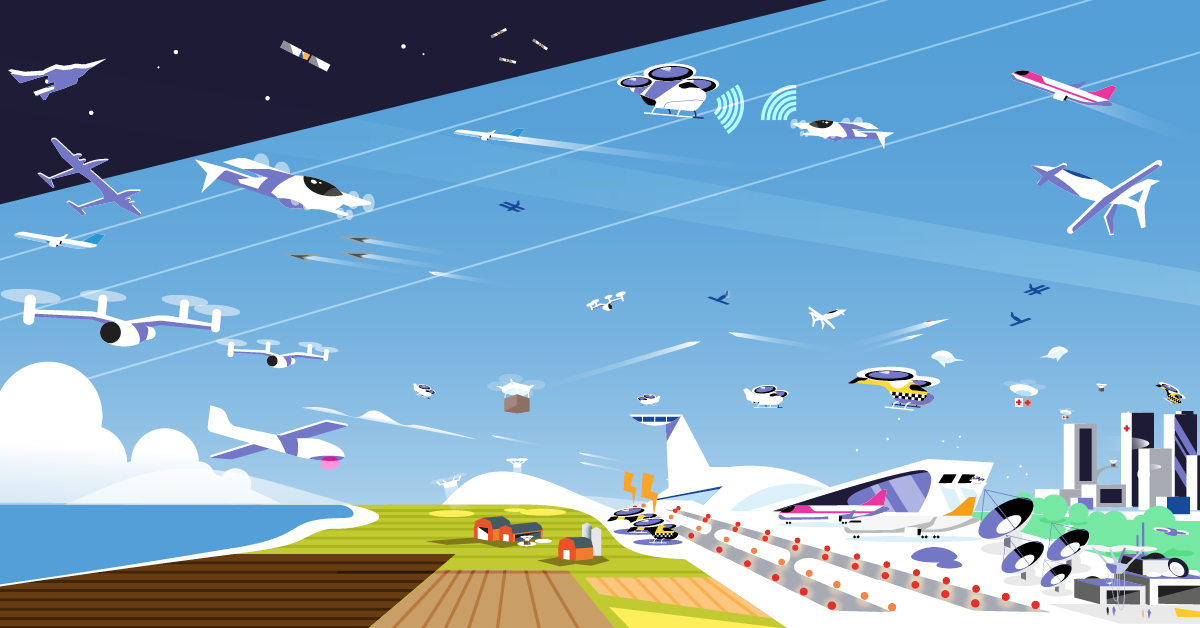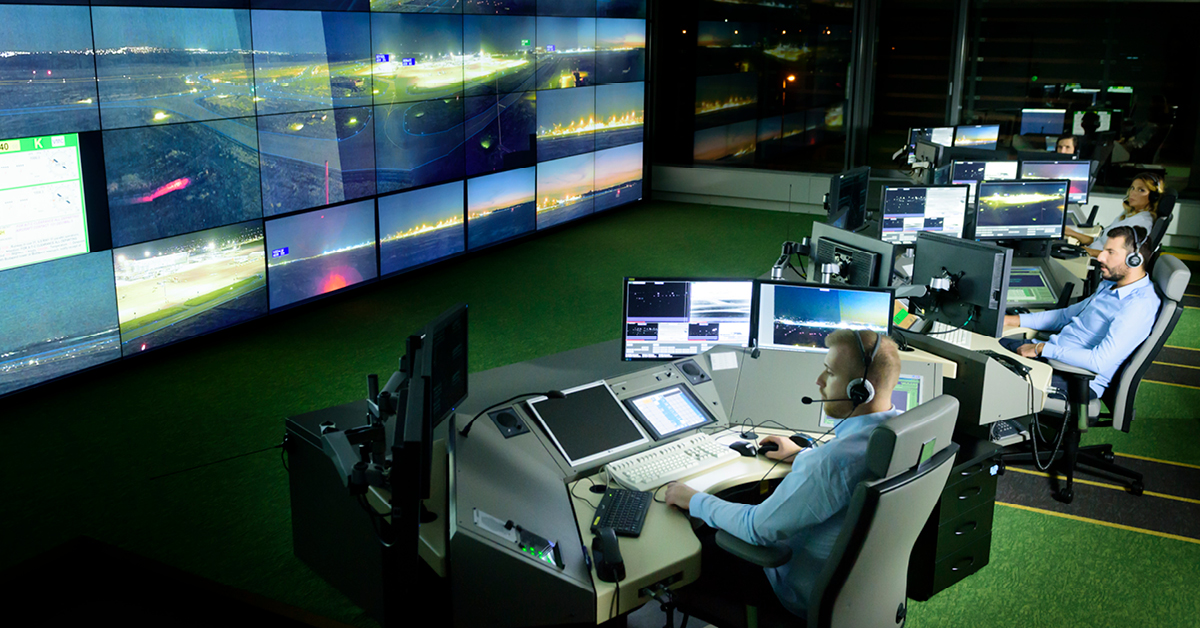Airspace Q4 2019 – SIRIUS written in the stars
Brazil’s SIRIUS programme manages the country’s National Air Traffic Management Implementation Plan. Fully aligned with ICAO’s Global Air Navigation Plan, the programme is based on the use of strategic solutions to continually evolve Brazilian ATM to a safer and more environmentally sustainable future.

“The implementation of the SIRIUS programme will ensure Brazil, in the short, medium and long terms, is able to increase operational capacity to meet the demand coming from forecasted air traffic growth while maintaining the desired levels of operational safety,” says Lieutenant Brigadier Jeferson Domingues de Freitas, Director General of Brazilian ANSP, DECEA.
The programme brings together a suite of expertise within DECEA, including communication, navigation and surveillance, aeronautical meteorology, aeronautical information management, search and rescue and human resources and performance.
This has ensured no stone has been left unturned in terms of requirements and has spread the programme’s benefits far and wide.
Taking advantage
The most obvious benefits of SIRIUS include new air routes and significant improvements in existing routes thanks to performance-based navigation (PBN).
Both domestic and international services are taking advantage. Trans-Atlantic flights, especially in the crucial Europe-South America corridors, for example, have greater positional accuracy and upgraded voice and data communication, enabling enhanced aeronautical information exchange between pilots and controllers.
Not only do passengers enjoy shorter flights but also fuel burn is reduced as a result of the improved decision making, bringing considerable environmental gains.
SIRIUS has also had a positive impact on noise mitigation efforts around airports with take-off and approach phases being expedited. As SIRIUS progresses, continuous climb and descent procedures, the use of preferred flight altitudes and numerous similar upgrades will enable a superior environmental performance and additionally improve operational safety and efficiency.
Automation
Meanwhile, the huge volume of information generated by the range of automated features that accompany various SIRIUS implementation projects will give DECEA opportunities for continual development.
Regulatory authorities stand to gain too. SIRIUS encourages robust yet open systems, enabling safety levels to be measured more easily and benchmarked on a regional and global basis, leading to smarter regulation.
SIRIUS even involves research and development institutions as continual upgrades will require new concepts to be developed, such as the effects of the ionosphere on satellite-based navigation systems.
Campos Basin
A case study of automatic dependent surveillance – broadcast (ADS-B) in the Campos Basin in southern Brazil – implemented in November 2018 – illustrates the improvements SIRIUS is bringing to Brazilian airspace.
The region covers approximately 100,000km2 and extends approximately 120 nautical miles from the coast. Known for its oil reserves, the main traffic in the Campos Basin is helicopters flying goods and people from Macaé airport to the offshore oil platforms at altitudes between 500ft and 4,500ft.
Older radar technology and the application of conventional separations hampered the efficiency of the flights, however, and meteorological conditions and low visibility in high seas increased concerns regarding safety.
A number of challenges had to be overcome to get ADS-B operational. The development of new regulations, training for different aircraft models from seven operators, the continuous management of safety risks and system sustainability all had to be considered.
However, following ADS-B implementation, aircraft separations have been minimised, delays cut 43% and flight punctuality increased 16% due to greater regularity in air operations and the reduction of flow control measures.
In addition, the region will benefit from faster and more cost-effective search and rescue missions, the reduction of ATCO workload, and a reduction in flight times and consequent fuel savings, estimated at BRZ1.31 million per year.
All the 122 helicopters flying in the region are already equipped with the requisite avionics but aircraft without ADS-B compatible technology can still be accommodated with appropriate permissions.
Overall, the project has demonstrated both the benefits of new technology and the value of SIRIUS as a master plan for the future of Brazilian air traffic management. Based on lessons learned from this project, for example, ADS-B implementation will continue in the oil basins located in Santos, Espírito Santo and in Brazilian continental areas.
SIRIUS will continue to guide DECEA’s decisions. “The SIRIUS Program will raise the capacity of providers to continuously enhance the quality of the services provided to all aircraft operators and their pilots,” concludes de Freitas.
The SIRIUS Legacy
- Operational safety improved
- More rational use of the airspace
- Reduction of harmful carbon emissions
- Noise reduction near airports
- Greater air traffic management efficiency
- Reduction of air traffic controllers’ workload
- Reduction of pilots’ workload
- Cost reduction for aircraft operators
- Cost reduction for air navigation services providers
- Better service for passengers



